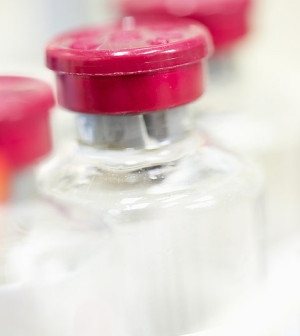- Could Your Grocery Store Meat Be Causing Recurring UTIs?
- Are You Making This Expensive Thermostat Error This Winter?
- Recognizing the Signs of Hypothyroidism
- 10 Strategies to Overcome Insomnia
- Could Artificial Sweeteners Be Aging the Brain Faster?
- Techniques for Soothing Your Nervous System
- Does the Water in Your House Smell Funny? Here’s Why
- Can a Daily Dose of Apple Cider Vinegar Actually Aid Weight Loss?
- 6 Health Beverages That Can Actually Spike Your Blood Sugar
- Treatment Options for Social Anxiety Disorder
Weight Loss Surgery May Boost Good Cholesterol in Obese Boys

Weight loss surgery could help severely obese teenage boys reduce their risk for heart disease by increasing their levels of “good” cholesterol, a preliminary study suggests.
The surgery also enhances the protective effects of HDL cholesterol, the researchers said.
“We already knew that weight loss surgery improves weight and cholesterol numbers. This new research shows that there are actually changes in the way HDL functions in adolescents, which may lead to a reduction in long-term cardiovascular risk,” study author Dr. Amy Shah, a pediatric endocrinologist at the Cincinnati Children’s Hospital, said in an American Heart Association news release.
The small study involved 10 severely obese teen boys. The participants had an average age of 17 and weighed an average of 367 pounds. The researchers noted that 90 percent of the boys were white.
The teens underwent a type of weight loss surgery known as vertical sleeve gastrectomy. This procedure helps people shed excess weight by reducing the size of their stomach.
One year after their operation, the boys lost an average of 111 pounds. Their body mass index (BMI), a measure that assesses if someone is a healthy weight for their height, fell by 32 percent.
The study also showed the teens’ levels of HDL had risen by 23 percent in the year. And their HDL’s ability to remove cholesterol from the arteries increased by 12 percent.
Meanwhile, the ability of their HDL to generate free radicals and trigger inflammation dropped by 30 percent. In fact, the study showed that following weight loss surgery, HDL became more anti-inflammatory.
“Despite remaining obese, these young men showed improved metabolic health measured by HDL function after surgery,” Shah said.
The researchers noted their findings are limited since the study was small and only included boys.
“We plan to expand our work to study girls, to look at time points sooner than one year to see how early after surgery HDL function improves, and will compare these results to other types of weight loss surgery,” Shah said.
The findings were to be presented Thursday at an American Heart Association meeting in Nashville, Tenn. Findings presented at meetings are generally viewed as preliminary until published in a peer-reviewed journal.
More information
The U.S. National Institute of Diabetes and Digestive and Kidney Diseases provides more information on weight loss surgery.
Source: HealthDay
Copyright © 2026 HealthDay. All rights reserved.










